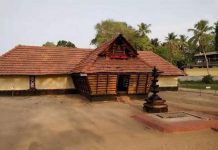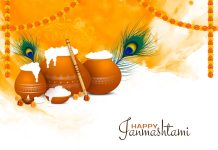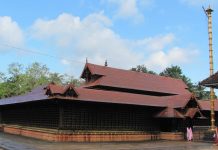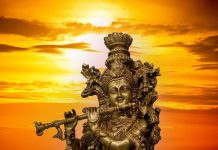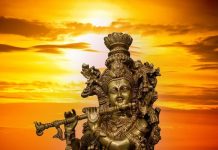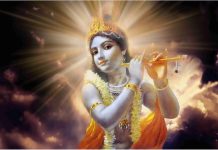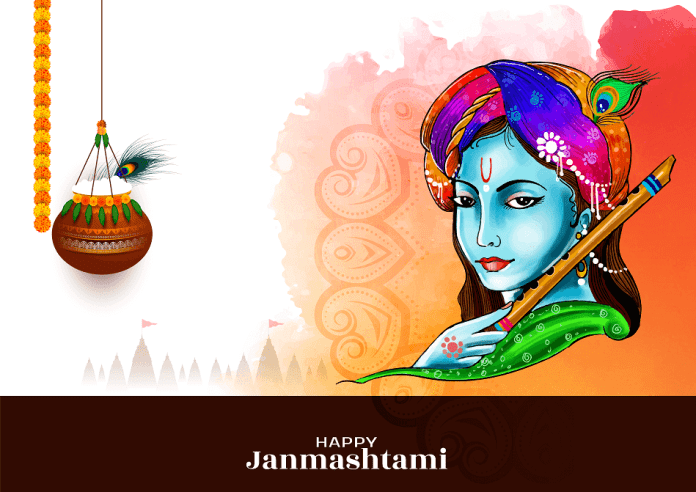
Janmashtami, also known as Krishna Janmashtami, is one of the most important and widely celebrated Hindu festivals in India and around the world. It marks the birth anniversary of Lord Krishna, who is considered one of the most revered and beloved deities in Hinduism. Janmashtami typically falls on the eighth day (Ashtami) of the Krishna Paksha (the waning phase of the moon) in the Hindu calendar month of Bhadrapada, which usually falls in August or September in the Gregorian calendar. This auspicious occasion is celebrated with great enthusiasm and devotion by millions of devotees.
The Legend of Lord Krishna’s Birth:
The story of Lord Krishna’s birth is deeply rooted in Hindu mythology. He is believed to be the eighth incarnation of Lord Vishnu, the preserver of the universe. According to the Bhagavata Purana and other sacred texts, Lord Krishna was born in Mathura, a city in present-day Uttar Pradesh, to Vasudeva and Devaki. However, his life began in tumultuous circumstances.
Devaki’s brother, the evil King Kansa, had imprisoned both Devaki and Vasudeva due to a prophecy that Devaki’s eighth child would be the cause of his downfall. Kansa killed Devaki’s first six children, but when Lord Krishna was born, a series of miraculous events took place. The prison doors opened on their own, and Vasudeva managed to carry the infant Krishna to the safety of Gokul, where he was raised by Yashoda and Nanda, another couple.
Lord Krishna’s childhood is filled with stories of his divine exploits, including his playful pranks, love for butter (Makhan Chor), and his enchanting flute music. His teachings in the form of the Bhagavad Gita are considered some of the most profound spiritual and philosophical wisdom.
Janmashtami Celebrations:
Janmashtami is celebrated with a lot of zeal and fervor throughout India. The celebrations typically begin at midnight, the supposed time of Lord Krishna’s birth. Devotees fast during the day and break their fast after midnight, symbolizing the momentous occasion. The main rituals and customs associated with Janmashtami include:
1. Krishna Temples: Devotees throng to temples dedicated to Lord Krishna, such as the famous Krishna Janmabhoomi temple in Mathura and the ISKCON temples worldwide. Special prayers, bhajans (devotional songs), and aarti (ceremonial worship) are performed.
2. Dahi Handi: In Maharashtra, Janmashtami is celebrated with the “Dahi Handi” festival. Young men form human pyramids to break a pot of curd suspended at a great height, symbolizing the playful nature of Lord Krishna.
3. Rasa Lila: In the holy city of Vrindavan and other places associated with Lord Krishna’s life, devotees enact the “Rasa Lila,” a reenactment of Krishna’s dance with the gopis (milkmaids). This dance symbolizes the divine love and devotion between Lord Krishna and his devotees.
4. Fasting and Devotion: Many devotees observe a day-long fast and engage in continuous prayer, reading scriptures, and singing devotional songs dedicated to Lord Krishna.
5. Decorations: Homes and temples are decorated with flowers, garlands, and images of Lord Krishna. Cradles are prepared for baby Krishna, and idols are adorned with new clothes and jewelry.
6. Swinging the Lord: In some regions, a small idol or image of Lord Krishna is placed in a decorated swing, which devotees gently sway to symbolize his childhood.
7. Community Feasts: It is a tradition to prepare delicious vegetarian dishes, especially those that Lord Krishna is believed to have favored, such as makhan (butter), chhappan bhog (a feast of 56 items), and various sweets.
Janmashtami serves not only as a religious festival but also as a cultural celebration of India’s rich heritage. It brings people together in devotion, fosters a sense of unity and joy, and allows them to connect with the divine through the life and teachings of Lord Krishna. The festival exemplifies the enduring love and reverence that millions hold for this divine incarnation in Hinduism.


























